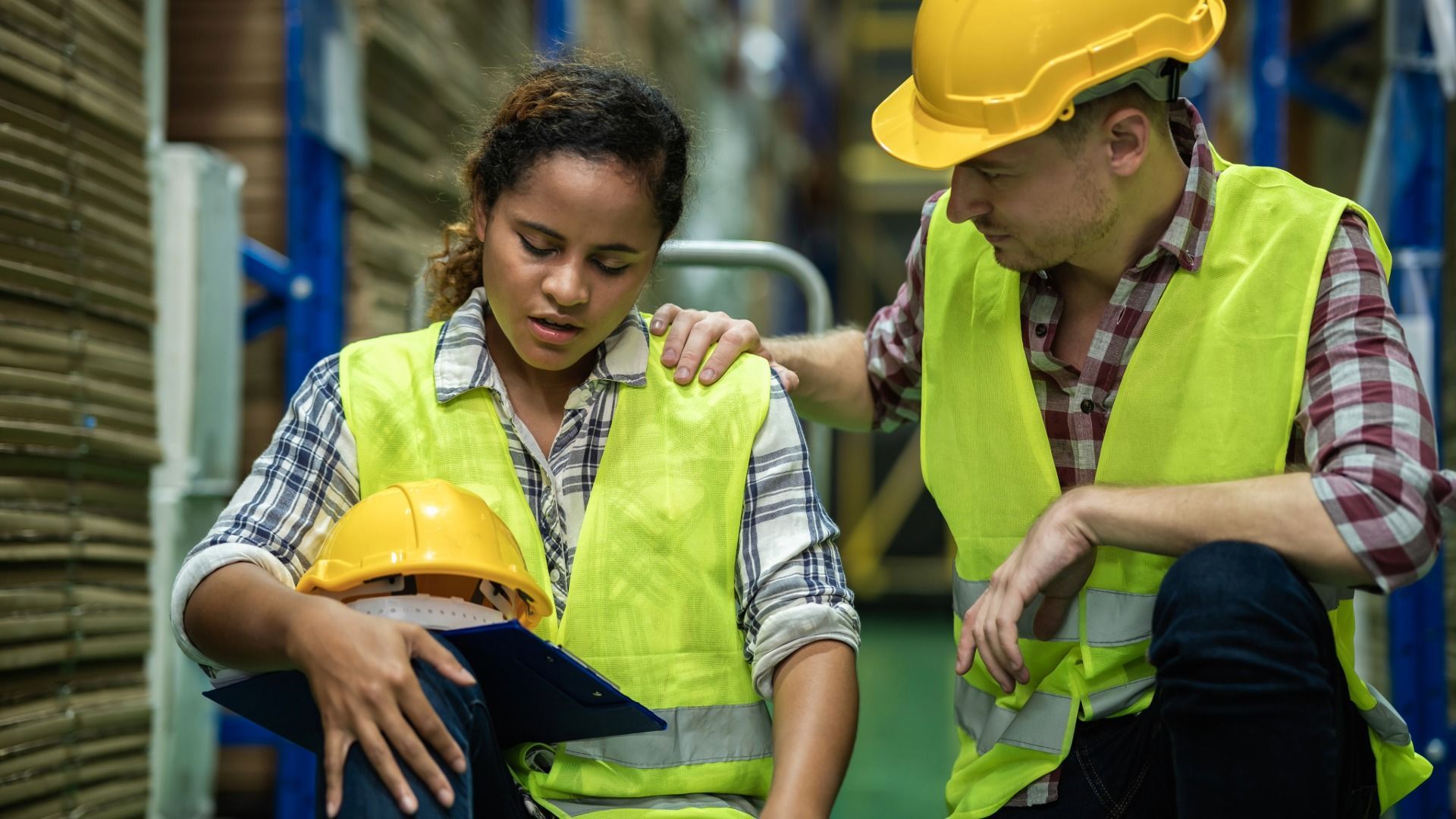An interview with Janette O’Brien, Head of HSEQ at JLL by Jacqueline Batterham
Janette O’Brie
Head of HSEQ
Janette is the Head of HSEQ at JLL. JLL is a leading professional services firm, headquartered in Chicago Illinois with employ close to 100,000 employees globally. JLL specialise in real estate and investment management. JLL shapes the future of real estate for a better world by using the most advanced technology to create rewarding opportunities, amazing spaces and sustainable real estate solutions for clients, people
and communities.
Janette has been working in industry long enough to see several trends and changes driven by many interested parties; notwithstanding regulators, academics, professionals from many domains to improve experience and organisational performance when it comes to managing health safety and the environment. She believes accessing people to develop the solution is critical, hearts and minds across the slice of organisations is a key driver underpinning successful strategy. Never sitting still, being curious and constantly thinking and collaborating on innovative ways to improve engagement and outcomes is her mission. Working across many industries Janette enjoys the constant challenge and variety that construction management brings from greenfield to brownfield sites, no one day is ever the same with a varied and a never-ending supply chain to be managed. Success in Janette’s career can be measured across many areas; building large engaged resilient teams, mentoring other safety professionals resulting in career progression, contributing to the wider profession through many networks, improved many organisations performance and risk control, strong leadership to drive positive cultural change, gained new business based on HSE systems in place and strong general knowledge and technical skills for high risk management.
Taking a lead role across Project & Development Services at JLL Australia what are some innovative strategies you have been doing?
Over the past 18 months we have developed a contemporary, streamlined, user- centred HSE integrated management system that is directly relevant to our project delivery model with a strong emphasis on assurance across our supply chain. Central to this are our High-Risk Management Standards with specific controls. This has been certified to 45001, 9001, 14001 and the Office of the Federal Safety Commissioner.
We are now at a stage to bed this system down and drive cultural maturity. To do this we are building technology innovation into the implementation. Taking our project management tools for managing HSE risk and turning these into Power Apps. We are now collecting data providing us valuable insights into all areas via a series of dashboards. We are applying the HSE Index to measure our behaviour change, including the areas of engagement, leadership, wellbeing and systems.
What are your thoughts on the construction industry as a female Exec. Your lessons learned and any advice for the younger generation of females coming through?
Female leadership across high risk industry in the field of HSE has grown over the past 10 years. If you look around the boom in infrastructure growth particularly in NSW and Victoria, there are many assertive strong females in executive positions driving very good performance and cultural maturity within leadership teams.
On high risk worksites females are comfortable and understand the critical risks that are right there in front of them, including the re-emergence of risks that have been with us in industry forever and now coming back to our cities as we build major civil infrastructure.
As more educated females come through the ranks in what has been traditional male dominated trades and professional vocations, we are seeing females wanting to work in HSE generalist and technical roles.
The younger generation coming through need to know and understand how business works and how work is done to truly be able to drive improved HSE performance. Diversity and inclusion strategy is very big in organisations now, the playing field is a lot more equitable. Young professionals coming through need to be educated, resilient and curious. Understand the why to drive improvement in the what and the how. HSE management is an integral part of anyone’s job it is not something that sits out there. Importantly to be successful you need to be educated, respect all people, add value go over and above, be a life-long learner, work hard to build your credibility and drive solution focussed outcomes. Another important tool to have in your kit is strong emotional intelligence this is a skill that can be learned. Nurture a strong network, be flexible and earn to live with ambiguity. Being confident and backing yourself is a key to finding success in a male-dominated industry.
How has Covid affected JLL (if at all), were there any good measures you put in place and what are your predictions for the future of the construction industry?
Covid has affected everyone and every industry greatly in a positive and a negative way. It is a bonus if you are in an organisation like JLL with very good technology, we can work anywhere at any time. JLL as a world leader in real estate services, Covid-19 resources have been provided for industry. For JLL employee’s wellbeing resources have been provided with connection to many learning opportunities and support services.
Construction work hasn’t stopped during the critical times of stopping the spread of the virus. Every day is a challenge across Australia dealing with cluster outbreaks on construction sites. Now most organisations are in a routine of having good control strategies in place. The challenge with construction workers is to ensure complacency doesn’t creep in, it is a new habit to ensure physical distancing is met, you can’t shake your mates hand anymore, hands need to be washed with soap for 20secs this is not easy, in times gone by workers would tend to work if they had a cold or slight flu symptoms, now this is not acceptable. At least construction workers are used to wearing masks! We are doing personal thermo-scanning on critical sites and ensuring we know more than ever who is onsite at all times. Knowing the foreseeable psychological risks that exist with construction workers we are making sure we are providing support at our worksites.
Construction work will only continue & grow in the future as the government sees this sector as a critical stimulus for the economy at this time and in the years to come. If positive Covid cases are traced to construction sites these sites will be closed for deep cleans and local controls reinstated. In these unprecedented times we rely more than ever before on the individual to be diligent and honest to protect our public health.
This year more than ever has shown the world is an unpredictable place. Who would have thought a barrel of oil would plummet to zero and a single video communications company Zoom would eclipse the 3 biggest US airlines in value!
What are some ways your industry sector been engaging & collaborating?
It is very important we keep eyes wide open to the outside world and learn from what other organisations are doing. To see what is working and what is not working across industry is beneficial.
This year due to Covid, most engagement has occurred via video conference. Traditional face to face gatherings have transitioned well to virtual settings. The number of webinars and interactions has been easy and useful. I find LinkedIn is a great business tool as well to stay in touch and see what is being achieved and the what and how challenges are being met. The Australian Institute of Health and Safety has demonstrated good leadership to share and engage with its members, I have gained a lot from various professionals they support and share with industry.
If you are interested in learning more about Zenergy , or if you would like to collaborate in our next Health, Safety and Wellbeing blog please feel free to contact Jacqueline Batterham on 1300 333 400
Contact Us
Zenergy News

Tel. No.
1300 333 400
Our Offices
Sydney
25 Brisbane Street
Surry Hills NSW 2010
Melbourne
Level 23, Tower 5
Collins Square
727 Collins Street
Melbourne VIC 3008
Brisbane
Level 54
111 Eagle Street
Brisbane QLD 4000
Perth
108 St Georges Terrace
Perth WA 6000
Services
Quick Links
About Us






